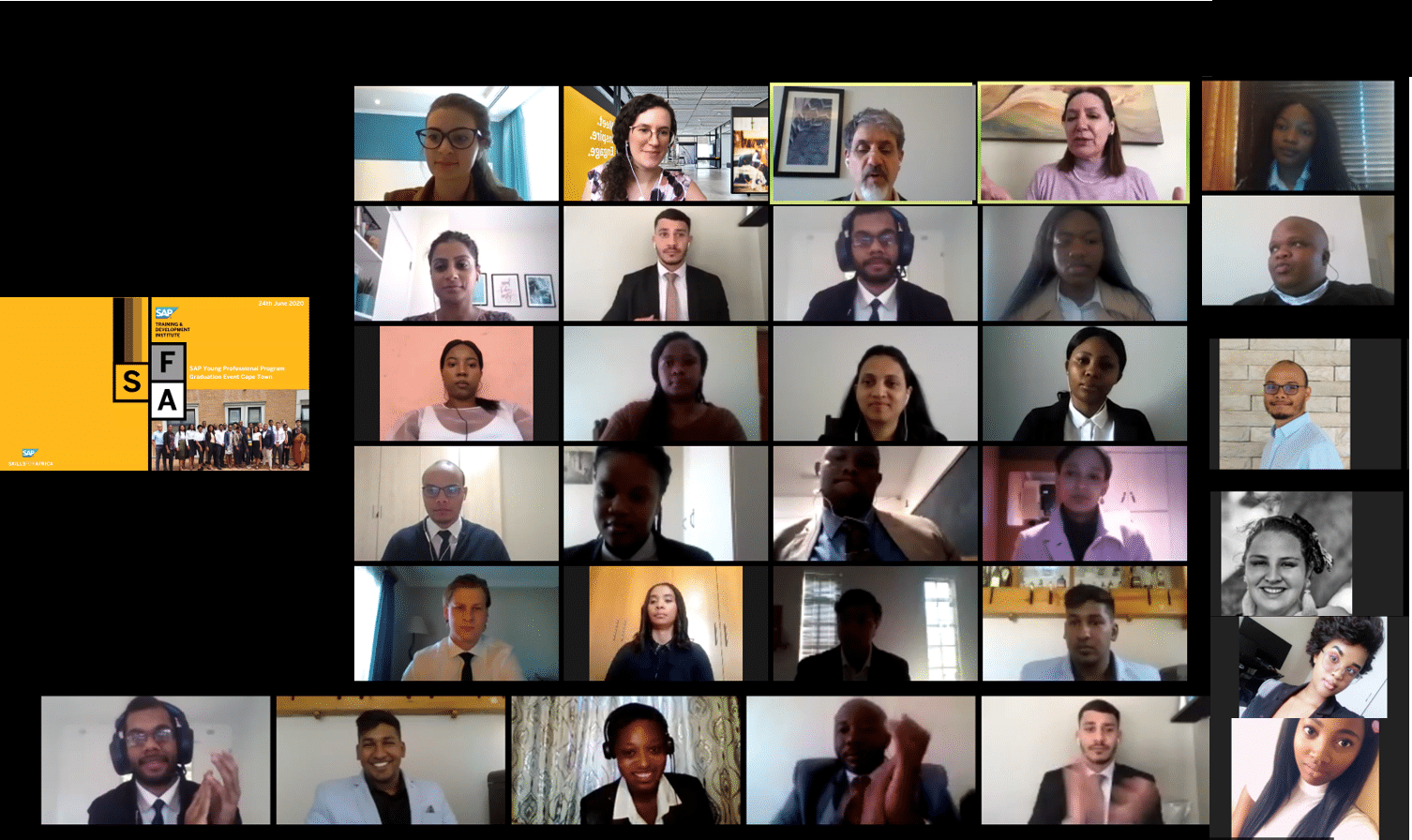When the coronavirus pandemic gathered pace, governments were quick to impose lockdown restrictions, closing schools and universities for several months. But the 25 young talents of the latest SAP Young Professional Program in South Africa were able to continue the program thanks to the immediate adjustment of the initiative to a fully virtual format.
“It was really important to us that we could complete our studies and use our newly-gained competencies to support companies as digital skills are becoming even more critical in an increasingly digital world,” says Joseph Skabate, one of the latest group of graduates who is now placed with BMW. “Thankfully, the program moved to a virtual teaching model which allowed us to complete our training and graduate with work-ready skills that could immediately make a positive impact at the organisations we were placed in.”
The SAP Young Professional Program is a three-month training and development opportunity for university graduates that teaches technical and functional knowledge of key SAP technologies and is offered under the SAP Skills for Africa initiative across Africa. Young professionals graduate as SAP Associate Consultants and, through close partnerships between SAP and its customers and partners, are placed in roles where their skills can make an impact.
Marita Mitschein, Senior ice President Digital Skills Southern Europe, Middle East & Africa SAP and Managing Director at the SAP Training and Development Institute, says it was challenging to switch to a virtual learning model when the program traditionally involved face-to-face training sessions. “However, we didn’t lose any time to ensure ongoing programs as well as upcoming ones could continue as planned, albeit in a different format.”
Mitschein says the initiatives under SAP Skills for Africa are one of the main conduits of work-ready skills between SAP and its customers and partners. “With companies relying on digital technologies more than ever for their productivity and business continuity, it was critical to us to ensure they have the depth of SAP skills they need to operate successfully amid the disruption brought by the pandemic and afterwards.”
According to data by the World Bank, more than 230 million jobs in Africa will require digital skills by 2030. The continent is also the world’s most youthful region, with more than 60% of sub-Saharan Africa’s population under the age of 25. With declining population growth in many developed countries, Africa’s youthful abundance is expected to play a key role in the 21st century digital economy.
“In light of the very different post-pandemic world that lies ahead, the urgency to close the digital skills gap and support youth skills development is more evident and critical than ever before,” says Mitschein. “Organisations share the responsibility to take action and secure a bright digital future bursting with possibility for all. SAP continues to drive various initiatives to close the digital skills gap, in line with our purpose of helping the world run better and improving people’s lives.”
Former graduate Rosette Simerone lauds the program’s effectiveness at instilling the technical and soft skills graduates will need to smoothly transition to the digital working world. After graduating from the University of Pretoria with a degree in Mathematical Statistics, she pursued a career in data analytics before receiving an offer to train with SAP through the Young Professionals Program.
“After successfully completing the program I secured an internship at MIT Auto Parts, focusing on supporting the company’s sales and distribution as well as data analytics capabilities. While I still have much to learn, the SAP Young Professional Program as part of SAP Skills for Africa has given me an incredible platform from which to build a successful career in the digital economy.”
The SAP Young Professional Program has become a global best practice that supports the immediate employability of young talents in technology through collaboration and partnerships. Since its launch in 2012, the program has trained and graduated more than 1170 youths across Africa and more than 2870 talents globally, therefore creating sustainable work opportunities for the new digital economy. In West Africa two groups of 27 students each will complete their training in August this year, while the next cohort in South Africa started mid-July.



